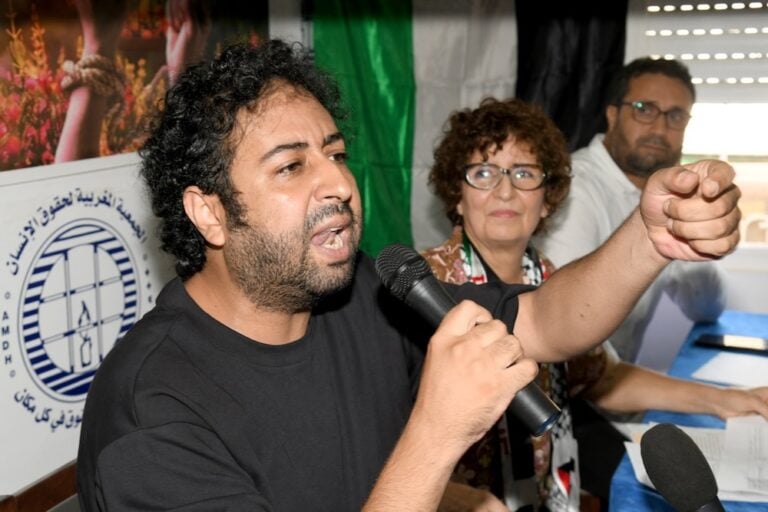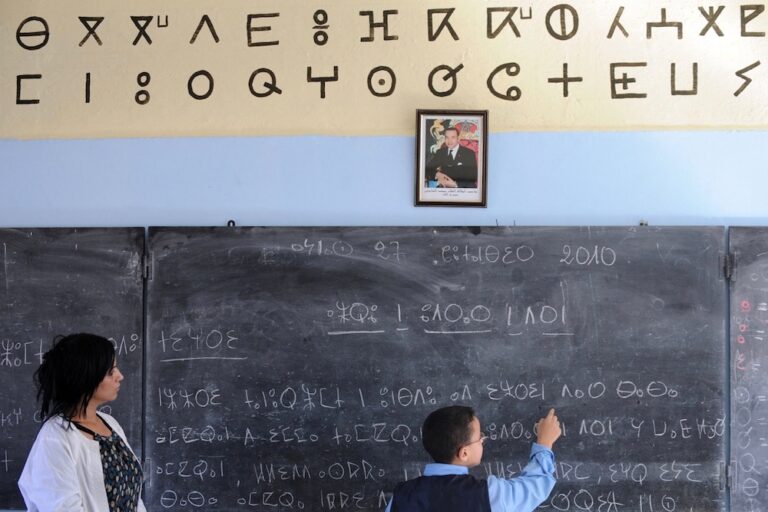(IFJ/IFEX) – The following is a 12 December 2000 IFJ press release: Journalism in Crisis in Morocco: the Press Code must be reformed With regard to the freedom of information situation in Morocco, the Executive Committee of the International Federation of Journalists, meeting in Sydney on 8 and 9 December, wishes to express its solidarity […]
(IFJ/IFEX) – The following is a 12 December 2000 IFJ press release:
Journalism in Crisis in Morocco: the Press Code must be reformed
With regard to the freedom of information situation in Morocco, the Executive Committee of the International Federation of Journalists, meeting in Sydney on 8 and 9 December, wishes to express its solidarity with the National Union of the Moroccan Press (Syndicat National de la Presse marocaine, SNPM) in its battle for reform of the Press Code and for freedom of information.
The Executive Committee, having deplored the banning of three Moroccan weekly newspapers, which was brought to the committee’s attention by its member M’Jahed Younes, believes it necessary to remove Article 77 of the Press Code, which allows the authorities to ban or seize publications with no appeal to the courts. Only the courts should be able to authorise sanctions against media which commit offences.
The Executive Committee recalls that the journalism profession also requires respect for the professional code of ethics. The Committee believes that the exercise of freedom must be guaranteed by responsibility towards public opinion so that media can be credible communications tools.
It is necessary to create the conditions for professional journalism, notably to set up a press council, which would serve as a self-regulating body for the profession, capable of dealing with the issue of ethics in Moroccan journalism.
The Executive Committee asks that the Moroccan authorities reform public media and end the state monopoly.
A lack of respect for the conditions necessary for the erection of a state of law – which necessitates the democratisation of public media and the modification of professionals’ status, thus enabling them to exercise their profession in an environment which is free and independent of the authorities and all outside influences – hinders the public service role which the media should play.
The IFJ represents over 450,000 journalists in over 100 countries of the world.


